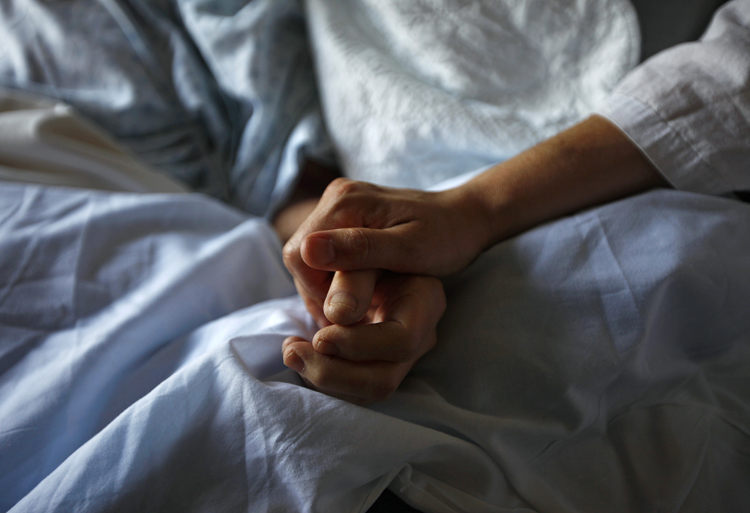Death is a fact of life, one that each of us will have to face personally at some point — and likely among friends and family before that.

A new program out of Douglas College is training professionals whose job is to do provide solace to those at the end of their lives.
They’re called “end-of-life doulas” or “death doulas,” and they help by providing physical, emotional and spiritual care to a person at the end of life.
LISTEN: Big demand for Douglas College End of Life Doula program
Jennifer Mallmes is a practising end-of-life doula, and an instructor in the Douglas program.
Speaking with CKNW’s Simi Sara, Mallmes said she was drawn to the vocation years ago while training as a nurse, only to have a patient die alone in her arms.
“It just rocked my world. I thought, where is this family? Where are the nurses? And we can do better,” she said.
That led her back to study gerontology at SFU with a focus on death and dying. In studying how other cultures handle death, Mallmes said she realized there was plenty Canadians could learn about the process.
“It’s just North Americans, basically, that don’t do death well.”
WATCH: What is a death doula? Emerging profession changing how we deal with death

Advocate and guide
Whether it’s because of age or a terminal illness, seeing death coming can be scary, said Edith Kirkpatrick, coordinator of Douglas’ Continuing Professional Education in health sciences.
That’s where an end-of-life doula can come in, helping to facilitate the hard conversations with family and friends that surround such a taboo subject.
“We’re all born and we’re all going to die at some point, and the opportunity is to have the conversation in a thoughtful way,” she said.
READ MORE: Palliative care: The elephant in the room in the assisted dying debate
“And for the person who is leaning towards that transition, that person who is going to die, to have the doula as their advocate, to help them have those conversations with family.”
In addition to giving people “permission” to think and talk about death, doulas can act as a guide to help someone facing the end of their life make decisions about what their death will be, said Mallmes.
WATCH: Death doulas talk about what they do and why their services are needed.

That includes things like whether they will die at home, or in a hospital or hospice; what kinds of things are on their bucket list; and whether their priority is how they spend their remaining time or living as long as they possibly can.
“I would like to encourage people and empower people to make choices about how they want to do that, where they want to do that, who they want to have these conversations with,” Mallmes said.
“All of these little details, so that they’re not leaving anything behind except for a good legacy and a great memory.”
READ MORE: Innovations in palliative care could improve access for Canadians
While there is currently no official professional body that represents end-of-life doulas, Mallmes is working on developing an association of people in the field.
She’s also trying to connect with Doula Training Canada, which teaches birth doulas, in order to create a “community of practice.”
People interested in contacting an end-of-life doula can do so online through deathdoulacanada.org, or through the Douglas program.
- Buzz kill? Gen Z less interested in coffee than older Canadians, survey shows
- ‘She gets to be 10’: Ontario child’s heart donated to girl the same age
- Bird flu risk to humans an ‘enormous concern,’ WHO says. Here’s what to know
- Canada updating sperm donor screening criteria for men who have sex with men








Comments